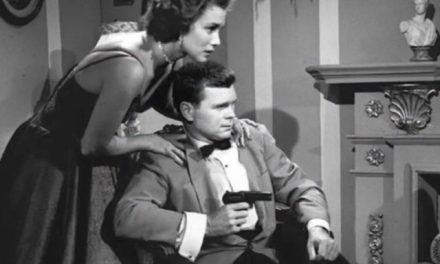Two years ago, I wrote a provocation for CST about the problems that the continued tendency to priorities research on a particular kind of television creates for the academy. I argued that all we do is underpin existing hierarchies of gender and race in the academy and that a solution could be that we look at other television. The commentary was aimed at much at my own research – I felt somewhat trapped in the limits of TV drama studies – as it was at the wider community of TV scholars. The issue for me was the proliferation of scholarship on ‘quality’, ‘high end’ or ‘serial’ television which tended to be marked by values embraced by the Global North, the upper-middle class, the masculine, the straight and the ableist. Ranting is a good release, but it doesn’t change anything. What we need is fora to provide space for research on other topics and a place to celebrate television in different ways.
I am happy to say that this year we’ve managed to create such fora within the Critical Studies in Television umbrella. This includes the journal, which amongst others has looked at the role of women in the BBC, and the online blogs, which have, amongst others, addressed the shortage of production managers and the role of racing sports for Netflix. It also includes the conference and the awards.
Let me talk about the last two in a bit more detail:
The conference this year is dedicated to the outliers of television (studies). By focusing on the marginalised, we are able to bring to the forefront areas of research that do not just focus on the current trendy topics. We thus have papers dealing with lifestyle television, ‘cheap television’, regional and local television, working practices within television, sustainability and television and television aimed at the marginalised. But it also allows us to look at the television we have focused on so far differently. So, for example, it allows use to look at seriality not in relation to drama but how footballers are framed on television. Another paper looks at why The Sopranos suddenly became popular during lockdown. But it also allows us to precisely ask the question of what do we mean with television. Do we ever consider CCTV as television? Do we include YouTube? What about films commissioned by TV but made for cinematic release? There are so many areas to discuss, so much to consider, and perhaps we can start this at this year’s conference.
But just discussing it only affects us and will take years to trickle through to the wider community of television viewers (society) and producers (the industry). If we want to make the industry aware of the fact that it’s important to value more than greatest script, direction, acting, presenting, but that we value all of television, and for different reasons, we need to develop a showcase for such television. We did this for the first time last year with the Critical Awards in Television. We gave awards to TV production managers for keeping their crew safe. But we also gave awards to TV that helped us through the pandemic by giving us comfort. What this allowed us to do was actually also celebrate television that has so far had few or no wins, despite the fact that some of them have been running for years.
But there is more to celebrating television differently. I have just come back from a session with colleagues that talked about Comfort TV and how we often do not culturally value the programmes that give us comfort. A colleague admitted she watches EastEnders for comfort because it’s familiar and known. Another said they watched Doctor Who because they had seen it before. And another said they love Korean TV drama (the melodramatic ones that dominated Korean TV before Squid Game) because it is so predictable. When we then started talking about these terms in the context of service provision (‘the library service is predictable and familiar’) they realised that in our culture of persistent consumption, we do not value the known and the ‘having seen before’. Reflecting instead on what comforted them, made the participants realise that the cultural values of persistent change and ‘innovation’ may not actually deliver good service. Rather, we need to find the right balance between the two.

Fig. 3: Crashlanding on You (2019-2020), made for cable channel tvN, was one of the highest-rated Korean TV dramas ever.
Giving this session to colleagues from other services within the university, I realised that my work is about more than tackling the persistent devaluing of a medium that I love in all its diversity. But that our working through the problematic value judgements made about television also allows us to question and perhaps rebalance what we perceive as good elsewhere.
It is therefore important that we keep showcasing television that is not like other television but that we nevertheless love. So this year, we are encouraging the academic community – you – to tell us which television that is perhaps a bit of an outlier of television you value and love. In order to nominate your programme, please scan the QR code below or put 185-623-994 into the Vevox App.

Fig. 4: In case QR code doesn’t work, please enter 185-623-994 via the Vevox App
Elke Weissmann is Reader in Film and Television at Edge Hill University. She is currently considering changing this to Reader in Television and Film, however. Her books include Transnational Television Drama (Palgrave) and the edited collection Renewing Feminisms (I.B.Tauris) with Helen Thornham. She sits on the board of editors for Critical Studies in Television. She migrated to the UK in 2002 after realising that German television was as bad as she remembered.






